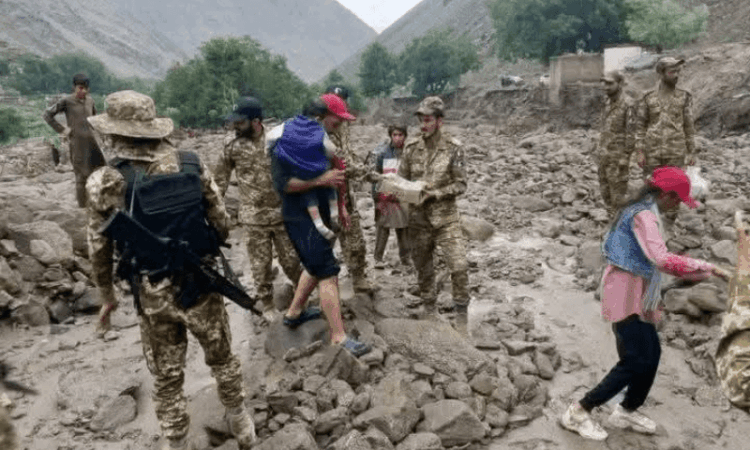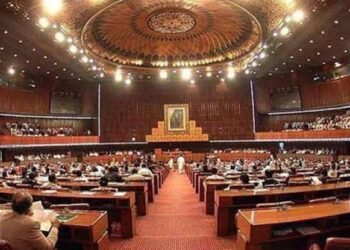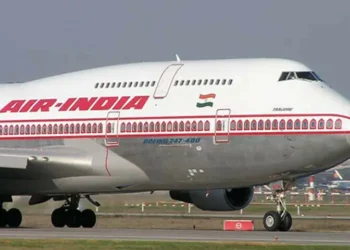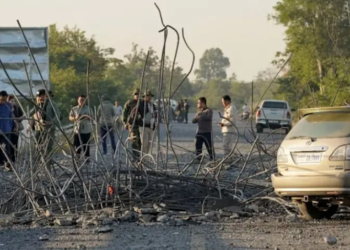ISLAMABAD (Web-Desk); All 250 tourists stranded on Babusar Road have been successfully rescued and relocated to Chilas, according to Gilgit-Baltistan (GB) government spokesperson Faizullah Firaq. He confirmed that both Babusar and Silk Roads remain closed due to recent flash floods caused by heavy rainfall. The rescue mission on Babusar Road has concluded, but a search operation is still underway to trace individuals who remain missing.
Firaq also reported that tourists stranded in the Deosai region have been safely evacuated to secure areas. The devastating flash floods in GB’s Diamer district on Monday resulted in the deaths of at least five people, including four tourists, while 15 others remain unaccounted for. A cloudburst at the popular tourist destination Babusar Top left dozens stranded and several injured.
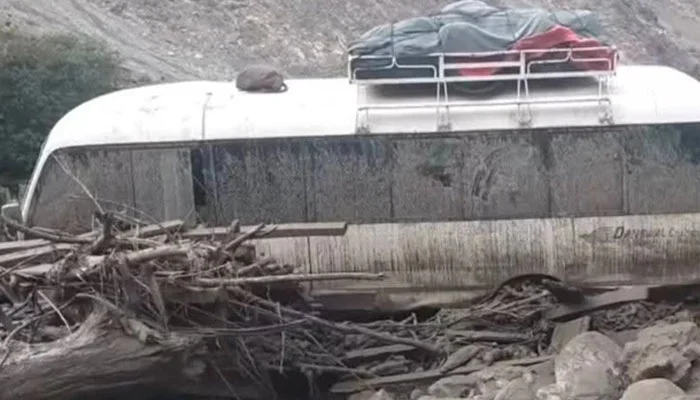
In light of the dangerous weather conditions, authorities have strongly advised tourists to avoid traveling to GB until further notice. The Naran and Kaghan valleys remain closed, and the Silk Route is currently open only for small vehicles.
To assist affected travelers, local hotel owners and the government have provided free accommodation. However, the Karakoram Highway, a critical route, has been closed once again at two locations, leaving thousands of travelers stranded. Efforts are ongoing to restore the Silk Road up to Bisham. GB Chief Minister Haji Gulbar Khan is expected to visit Babusar Road to assess the damage.
Nationwide, severe monsoon weather continues to disrupt lives. At least 13 more people were killed on Tuesday across the country due to rain-related incidents, pushing the death toll from this year’s monsoon to 234.
The National Disaster Management Authority (NDMA) has issued an alert, warning of continued moderate to heavy monsoon rains across Pakistan until July 25. The NDMA cautioned that these conditions could trigger flash floods, landslides, and glacial lake outburst floods (GLOFs) in northern regions.
Rain-bearing weather systems from the Bay of Bengal and Arabian Sea, along with developing low-pressure zones, are fueling the countrywide downpour. Mountainous areas in GB and upper Khyber Pakhtunkhwa (KP) are particularly at risk of GLOFs and landslides.
Rising water levels are anticipated in major rivers including the Indus, Jhelum, Chenab, and Kabul. Moderate flooding is expected at Marala, Khanki, and Qadirabad on the Chenab River, while elevated flows are also forecast in the Mangla catchment on the Jhelum and at Nowshera on the Kabul River. Water levels are also projected to rise at Tarbela, Kalabagh, Chashma, Taunsa, and Guddu barrages.
KP’s Swat and Panjkora rivers, as well as GB’s Hunza and Shigar rivers, face potential flooding. Flash floods are likely in the streams of Khunjerab, Shimshal, and Saltoro. In Balochistan, districts such as Musakhel, Sherani, Zhob, and Sibi are also vulnerable.
The NDMA has urged citizens to avoid traveling to mountainous areas until at least July 25, and warned against crossing bridges, nullahs, and waterlogged roads. Local administrations have been directed to prepare emergency response equipment, including dewatering pumps.
Heavy rainfall is forecast across parts of Punjab, Sindh, KP, Balochistan, GB, and Azad Kashmir through July 24.




















































